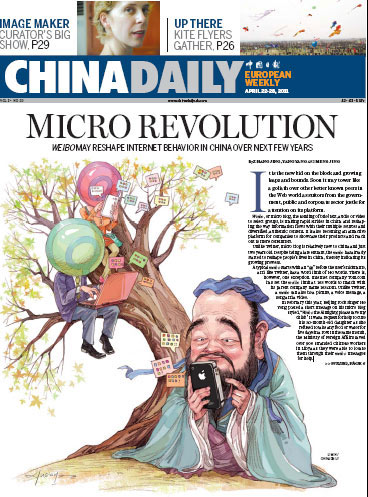Art
Classic tale retold
Updated: 2011-04-23 05:38
By Mu Qian (China Daily)
|
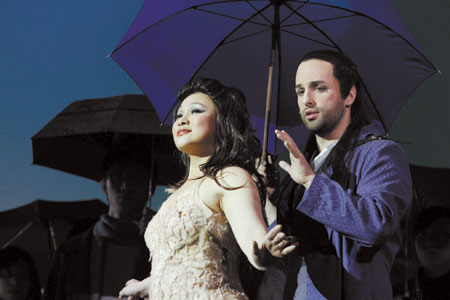 A scene from Madame White Snake featuring soprano Huang Ying as White Snake and Michael Maniaci as Xiaoqing. Provided to China Daily |
Composer Zhou Long's Pulitzer for an opera version of a Chinese legend caps decades of efforts to bridge the cultures of East and West. Mu Qian reports.
Zhou Long's decades of efforts to bridge East and West paid off when he became the first Chinese-American composer to win the Pulitzer Prize for Music for the opera Madame White Snake.
In its recommendation to the Pulitzer Board, the jury said, "with this ambitious opera based on an ancient Chinese folk tale, the Chinese-born Zhou Long attempts an impressive feat of cultural translation: a work that synthesizes ancient and modern, East and West, blending Asian timbres, instruments and musical traditions into a Western musical fabric in ways that transcend mere local color to become deeply expressive in their own right".
Co-commissioned by Beijing Music Festival and Opera Boston, and directed by Robert Woodruff, Madame White Snake premiered in Boston in February 2010 and was performed in Beijing in October 2010, starring soprano Huang Ying and tenor Peter Tantsits. The libretto is written by Cerise Lim Jacobs in English.
"I didn't believe it when I heard I had won the Pulitzer Prize. It's very exciting for me to win the prize, which is the highest honor for an American composer," says 57-year-old Zhou, whose voice has turned husky from answering the incessant ringing of the phone ever since the prize was announced on April 19.
|
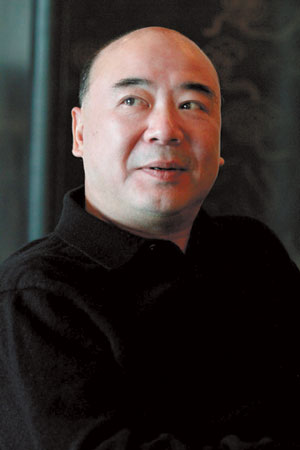 Chinese-American composer Zhou Long wins a Pulitzer Prize for Music for the opera Madame White Snake. Jiang Dong / China Daily |
Referring to the jury's statement that Madame White Snake "represents a sensuous vision of what American culture could be becoming", Zhou sees in it an affirmation of the contributions he and a group of other Chinese composers have made in the past two or three decades to American society's understanding of Chinese culture.
One of the first students of the Central Conservatory of Music after the "cultural revolution" (1966-1976), Zhou moved to the United States in 1985 to pursue his higher education in composition. He received a Doctor of Musical Arts from Columbia University in 1993 and became a citizen of the US in 1999.
Seeing himself as neither a solely Chinese nor a solely American composer, Zhou draws upon influences from both traditions to create a unique style. Inspired by Chinese poetry and calligraphy, he incorporates Chinese timbres and themes into Western conceptions of harmonic notions and chromaticism.
Madame White Snake is an ancient Chinese legend of a young scholar Xu Xian who falls in love with a beautiful woman, unaware that she is a white snake in human form. A monk intervenes to save the scholar's soul and condemns the white snake to a deep well.
Over the centuries there have been various versions of the story, ranging from horror to romance. The interpretation of the opera's librettist Jacobs, a Chinese Singaporean living in the US, is that "the deadly white snake gives up her immortal existence to assume a human form in pursuit of the most human of all emotions - love. She holds love dearly for a brief while, before losing it forever".
When the opera was performed in Beijing in 2010, Chinese audiences were somewhat taken aback to see a White Snake in slinky dresses, a foreign-faced Xu Xian who carries a modern suitcase, and Xiaoqing, White Snake's maid, played by a man.
Zhou admits that since the opera is sung in English, it primarily targets Western audiences, but maintains that his composition retains his signature blend of West and East.
"I won't write an opera in Puccini's style. That's not what I'm good at. What I do is incorporate Chinese elements into the base of Western music," he says.
In Madame White Snake, Zhou uses three traditional Chinese instruments to represent the three main characters - the bamboo flute for White Snake, the xun (ocarina) for Xiaoqing, and the erhu (two-stringed fiddle) for Xu Xian. He also borrows from Peking Opera's chanting for the recitatives.
Tu Song, program director of Beijing Music Festival, who witnessed the birth of Madame White Snake, says the opera proves that Eastern and Western cultures can be presented on the same stage.
"As the commissioning organization, we are very glad that our strategy of internationalization in Madame White Snake has won recognition. Chinese story, American production, and Chinese-American composer, the result is something international and multi-cultural."
The opera has had four performances in the US, but only one in China, at 2010's Beijing Music Festival. Tu says Zhou's Pulitzer will encourage more opera companies to come up with their own versions.
"With the same music, there can be various designs and performance styles, just like a dish can be cooked by people from different regions in their own ways."
As for Zhou, winning the Pulitzer with his first opera work has encouraged him to think of more operas in the future, although he admits that an opera is a great challenge for a composer.
"I'm confident of composing more operas, and if I do, my works will always be related to China," he says.
For now, Zhou is focused on a performance of Madame White Snake in 2012 in Kansas City, Missouri, where he lives, with Kansas City Symphony and Lyric Opera of Kansas City.
But before that he will be preoccupied with 1911 Overture, a work to commemorate the 1911 revolution of China that will premiere at the Beijing Modern Music Festival in May.
E-paper
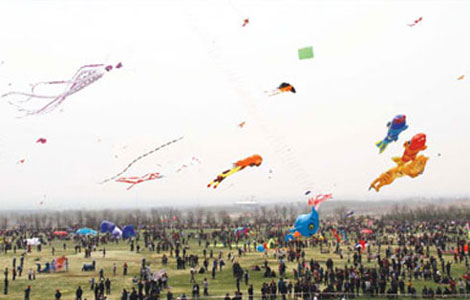
Blowing in the wind
High-Flyers from around the world recently traveled to home of the kite for a very special event.
Image maker
Changing fortunes
Two motherlands
Specials

Models gear up car sales
Beauty helps steer buyers as market accelerates.
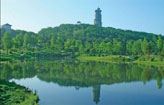
Urban breathing space
City park at heart of Changchun positions itself as top tourism attraction
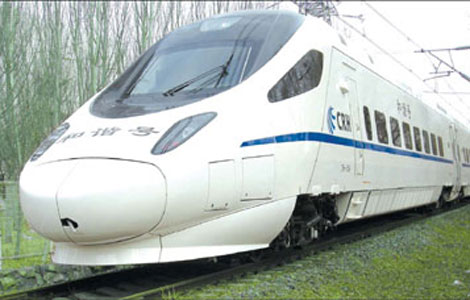
On a roll
Auto hub Changchun also sets its sight on taking lead in railway sector
